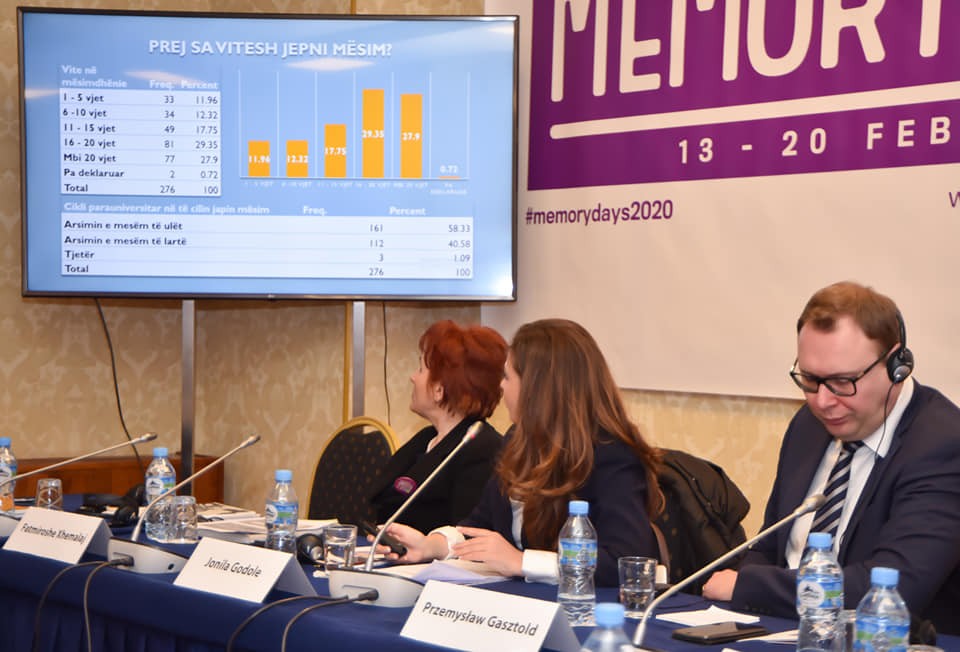History education and school curriculum after the 90s

In the context of MEMORY DAYS, the Institute for Democracy, Media & Culture (IDMC) with the support of the Konrad Adenauer Foundation (KAS), organized the international conference on "History Education and School Curriculum after the 90s".
With three sessions and 15 different speakers, the conference brought to attention the way history of totalitarian systems is presented in pre-university textbooks, as in examples from Germany and Poland.
IDMC executive director Jonila Godole noted that due to shortcomings observed in such materials, from 2014 the Institute has tried to improve the Albanian curriculum by consulting with teachers, training them, through conferences, publications and various research trips. While there have been changes for the better, Dr. Godole quoted a recent survey with about 300 history teachers conducted by the IDMC and the Albanian National Association of History Teachers (ALBNA), which pointed to a number of problems still in place.
"About three-fourths of the the teachers described deficiencies in the school curriculum with regard to how the dictatorship history is presented. Therefore IDMC is working on the third edition of the book "Communism through Archival Documents", on trainings and collections of testimonies of former political persecutees, so that students can have a full picture of this period in schools."
Przemysław Gasztold from the Institute of National Remembrance in Poland recounted the Polish experience. He said that under the motto "Our History Creates Our Identity" his Institute undertook a similar colossal work. With about 2,500 employees, it dealt with the lustration, research and denunciation of the crimes of communism, but since 20 years it also focused on education through constant publishing of texts and bulletins concerning the pre-university education curriculum.
The president of the German Association of History Teachers, Ulrich Bongertmann, then talked from his country's perspective. After the fall of the wall and the unification of East and West Germany, the pre-university education curriculum of the former communist country borrowed the entire post-1945 part of history from the west. Several regions then changed approaches and applied different perspectives more extended to several topics, creating a very different curriculum for different lands.
Curriculum expert Fatmiroshe Xhemalaj has first-hand experience in changing the history textbooks in pre-university education after 1990. She said that by 2005, the changes were dictated mainly by political intervention. While appreciating the assignment of about 12 lessons as a positive step, Mrs. Xhemalaj said that “the communist period is not the past, but the present, because it remains an obstacle in the reconciliation of society, in integration processes within the country but also in Europe, so a much better education is required".
Çelo Hoxha, director of the Institute for Research on Communism Crimes and Consequences (ISKK) focused his discussion on the poor explanation of the concept of dictatorship. He said that in the school curriculum, students should be taught the truth about volunteer work, socialist property, cooperatives, etc. Such concepts "were not true" because "voluntary work was compulsory, socialist property was not anyone's, and cooperatives meant the farmer owned nothing". The ISKK director noted that only an accurate explanation of concepts can improve the quality of education.
Other speakers included historian Petrit Nathanaili, lecturer Justina Dhimitri, the head of ALBNA Vojsava Kumbulla, researcher Myrteza Sharra, writer Alma Liço, expert from the Authority for Information on Former State Security Service Files Skënder Vrioni, teacher Nuredin Nazarko, and student Kristina Shahinaj.








